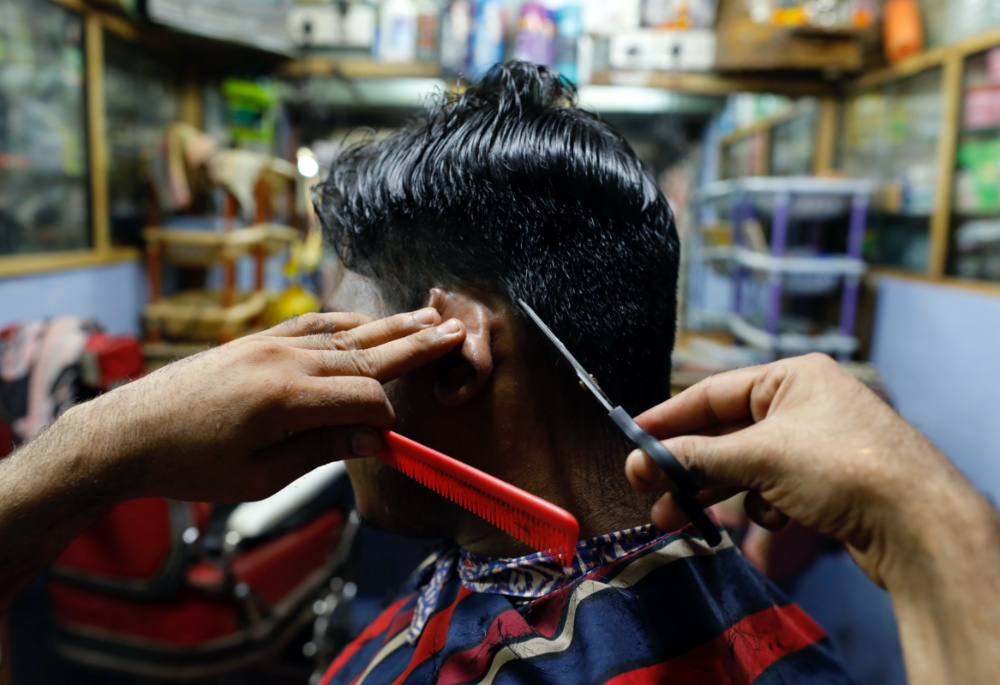
ANURADHA NAGARAJ, writing for Thomson Reuters Foundation, reports on how a “salon for all” aims to correct an historic wrong in India…
Chennai, India
Thomson Reuters Foundation
The struggle to get a haircut during the coronavirus lockdown has led to a rare victory for India’s marginalised Dalit community – a barbershop.
Scheduled to open for business next week, the “salon for all” in Idukki district of Kerala state in southern India has brought cheer to more than 200 Dalit families refused haircuts by their neighbourhood barbers in keeping with ancient caste bias.

A man gets a haircut at a salon in Mumbai, India, on 10th October, 2017. PICTURE: Reuters/Danish Siddiqui/File photo.
“I am against discrimination and wanted this practice to end,” said P Ramaraj, president of Vattavada village council, which is funding the new shop.
“We tried to negotiate with the two barbershops in the village and eventually had to seal them [shut] because they refused to cooperate. But people need to get a haircut and shave so we decided to open a new salon, where everyone will be welcome.”
“I am against discrimination and wanted this practice to end. We tried to negotiate with the two barbershops in the village and eventually had to seal them [shut] because they refused to cooperate. But people need to get a haircut and shave so we decided to open a new salon, where everyone will be welcome.”
– P Ramaraj, president of Vattavada village council, which is funding the new shop.
Welcoming the move, daily wage earner Selvam Durairaj said that he had been forced to travel 45 kilometres for a haircut since childhood.
“Each haircut trip costs us at least 200 Indian rupees ($US2.73), an expense we can’t afford. Sometimes we cut each other’s hair and young boys often wear a cap to hide it,” Durairaj, 35, said in a phone interview.
“Our grandfathers and fathers have protested in the past but nothing changed.”
Dalits, formerly known as untouchables – are at the bottom of the ancient caste hierarchy linked to the Hindu faith and face routine segregation and abuse.
India banned caste-based discrimination in 1955, but biases persist – be it a ban on Dalits sharing wells, visiting the same temples, or drinking from common cups at tea stalls.
Dalit children are even made to sit at the back of class in some schools.
“Traditionally, across India, barbers and washermen have rendered services only to upper-caste families in exchange of foodgrains,” said Baghambar Pattanaik, president of charity Anti-Slavery India.
“Barbers fear social and economic boycott from their upper caste clients if they cut a Dalit’s hair. In fact, barbers themselves are victims and are forced by circumstances to continue these biases.”
Mayil Palaniswamy, who sent a written complaint to the Vattavada village administration demanding the change, said his campaign was about far more than a haircut.
“It is a fight for our rights,” he told the Thomson Reuters Foundation over the phone.
A graduate working in a government e-service centre, Palaniswamy and his friends garnered support for their cause through social media, spotlighting the discrimination that “many were not aware existed”.
“We deserve equal access and this is a chance to correct a historic wrong.”






